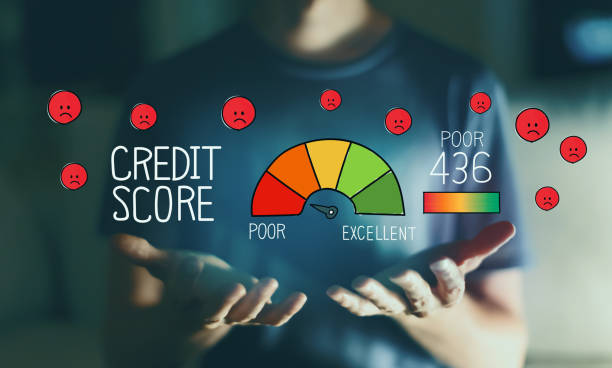Introduction
Applying for a loan can be an exciting yet complex process. Whether you’re seeking a personal loan, mortgage, business loan, or car loan, one critical step in the application process is submitting the required documents. Lenders use these documents to assess your financial stability, creditworthiness, and ability to repay the loan. Understanding what documents you need and why they are required can make the application process smoother and improve your chances of approval.
In this article, we’ll explore the essential documents typically required for a loan application, along with tips for organizing and submitting them effectively.
Why Do Lenders Require Documentation?
Before we dive into the specific documents, it’s important to understand why lenders request them. Loans involve a certain level of risk for lenders, and these documents help them evaluate:
- Your Identity: To verify who you are and ensure the application is legitimate.
- Your Financial Health: To determine if you have the financial stability to repay the loan.
- Your Creditworthiness: To assess your credit history and ability to manage debt responsibly.
- Collateral (if applicable): For secured loans, lenders need to confirm the value and ownership of the collateral.
Each type of loan may have slightly different requirements, but there are core documents that are commonly requested across all loan types.
1. Proof of Identity
Lenders need to verify your identity to ensure that the loan application is genuine and to prevent fraud. Common documents used for identity verification include:
- Government-issued photo ID (e.g., passport, driver’s license, or national ID card).
- Social Security Number (for U.S. applicants) or equivalent tax identification number.
- Birth certificate (in some cases).
Having multiple forms of ID on hand can speed up the process and provide backup if one document is not accepted.
2. Proof of Address
Proof of address is required to confirm your residence and establish jurisdiction for the loan. Lenders typically ask for one or more of the following:
- Utility bills (electricity, water, or gas) with your name and address.
- Bank statements with your address.
- Lease agreement or property deed.
- Voter ID card (if applicable).
Make sure the documents are recent—usually no older than three months—and match the address on your loan application.
3. Proof of Income
Lenders need to know that you have a stable income to ensure you can afford loan repayments. Proof of income is one of the most critical aspects of the loan application. Documents required for income verification include:
For Salaried Individuals:
- Recent pay stubs (typically the last two or three).
- Employment verification letter from your employer.
- Tax returns or W-2 forms (in the U.S.).
For Self-Employed Individuals:
- Profit and loss statements.
- Business tax returns.
- Bank statements showing consistent income.
- Contracts or invoices from clients (if applicable).
Consistency in income is key, so ensure the figures align across all submitted documents.
4. Credit Report and Score
While you don’t always need to submit your credit report yourself, lenders will access your credit history to assess your borrowing and repayment behavior. However, in some cases, you might be asked to provide:
- A recent credit report from a recognized credit bureau.
- Authorization for the lender to pull your credit report.
To ensure accuracy, review your credit report before applying and address any errors that could affect your application.
5. Bank Statements
Bank statements provide lenders with a snapshot of your financial health and spending habits. They help verify your income, savings, and ability to manage monthly expenses. Lenders may ask for:
- Bank statements from the last three to six months.
- Statements showing savings or emergency funds (if required).
Ensure your statements reflect consistent deposits and responsible financial behavior, as erratic transactions or overdrafts could raise red flags.
6. Loan-Specific Documents
Different types of loans may require additional documents tailored to the nature of the loan:
For Mortgages:
- Property documents, including the sale agreement or deed.
- Appraisal report to determine the property’s market value.
- Homeowner’s insurance documents (if applicable).
For Auto Loans:
- Vehicle purchase agreement or invoice.
- Vehicle registration and insurance details (if refinancing).
For Business Loans:
- Business registration documents or licenses.
- Business plan and projections (for startups).
- Articles of incorporation or partnership agreements.
For Student Loans:
- Proof of enrollment in an educational institution.
- Tuition fee breakdown or other educational costs.
Being aware of these specific requirements can save time and reduce back-and-forth communication with the lender.
7. Collateral Documents (for Secured Loans)
For secured loans, such as home equity loans or auto loans, lenders require documentation to verify the ownership and value of the collateral. This might include:
- Title deeds for property.
- Vehicle titles for car loans.
- Valuation reports from authorized appraisers.
Ensure the collateral documents are accurate and up to date to avoid delays.
8. Tax Documents
Tax documents offer additional proof of income and financial stability. Lenders often request:
- Recent tax returns (one to three years).
- Tax transcripts from the revenue authority (if required).
Tax documents are especially important for self-employed individuals or borrowers with variable income.
9. Co-Applicant or Guarantor Information (if applicable)
If you’re applying for a loan with a co-applicant or guarantor, their documentation will also be required. This typically includes:
- Proof of identity.
- Proof of address.
- Proof of income.
- Credit report and score.
A strong co-applicant or guarantor can improve your chances of loan approval, particularly if your credit profile is less than ideal.
Tips for Organizing Your Documents
- Create a Checklist: List all required documents before starting the application process to ensure nothing is overlooked.
- Use Digital Copies: Many lenders accept digital submissions, so scan your documents in high resolution for easy access.
- Verify Accuracy: Double-check all information for consistency, such as matching names, dates, and figures across documents.
- Keep Copies: Always retain copies of the documents you submit for your records.
- Submit Promptly: Providing documents promptly demonstrates your seriousness and helps speed up the approval process.
Common Mistakes to Avoid
- Submitting Incomplete Documents: Missing paperwork can delay the approval process or result in rejection.
- Providing Outdated Documents: Ensure all documents, especially proof of address and bank statements, are recent.
- Ignoring Discrepancies: Ensure consistency across all documents to avoid raising doubts about your application.
Conclusion
Submitting the right documents is a crucial step in the loan application process. By understanding what’s required and why, you can streamline the process, reduce stress, and improve your chances of securing approval. Whether you’re applying for a mortgage, personal loan, or business financing, preparation is key. Gather your documents early, organize them effectively, and ensure accuracy to make a strong impression on your lender. With the right approach, you’ll be well on your way to achieving your financial goals.

